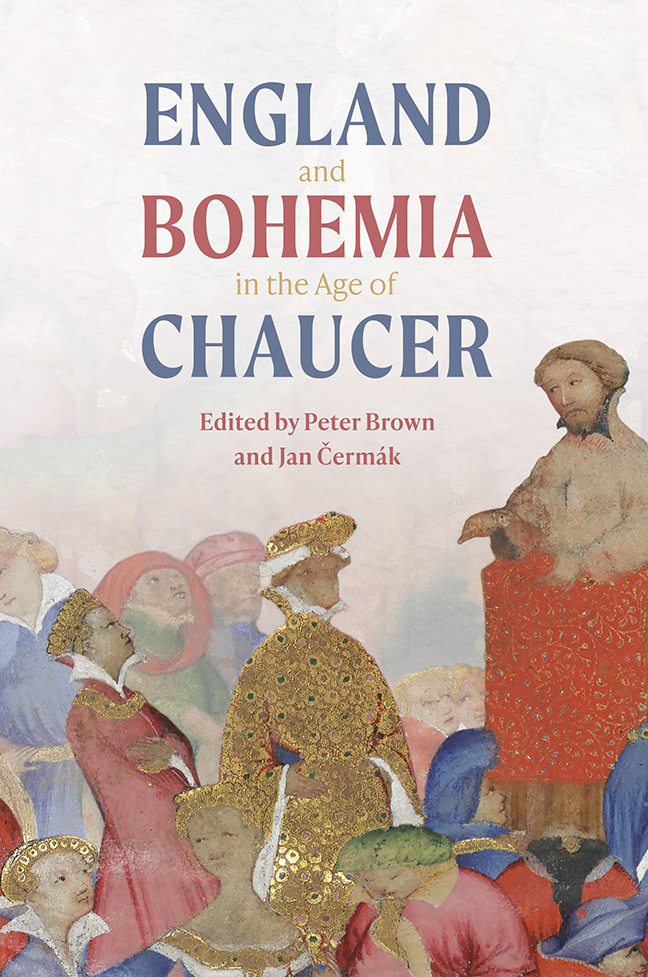11 - Humility and Empire: Anne of Bohemia, Chaucer, and the Virgin Mary
Published online by Cambridge University Press: 17 December 2023
Summary
‘Humility and Empire’ triangulates the Blessed Virgin Mary, Mother of God and Queen of Heaven; Anne of Bohemia, queen of England and daughter to a Holy Roman Emperor; and Geoffrey Chaucer, Esquire. It explores the dizzying dynamics of Marian devotion, a subject that still generally embarrasses Chaucer criticism, as its alternating of intimacy and awe plays out through Chaucer's poetry and, suggestively, through the court of Richard II. It reconsiders the long and complex process, acted out across Europe and meshed in necessities of war and Church schism, that brought Anne of Bohemia to Westminster in 1382 as Richard's bride. It examines Chaucer's role in this process, and how he recovered from initial wrong-footedness by making Queen Anne the most significant historical surrogate of his poetic corpus. It elucidates the wish that one of his protagonists, also an emperor's daughter, might become ‘of al Europe the queene’, and it ponders the futurity of combining heavenly humility with limitless imperial power.
This chapter is dedicated to the Blessed Virgin Mary, Mother of God and Queen of Heaven; Anne of Bohemia, queen of England and daughter to a Holy Roman Emperor; and Geoffrey Chaucer, Esquire. Use of forenames puts them on the same plane, suggesting some degree of commensurability. The addition of titles opens up vast vertical distances, neck-craning separations. Such is the peculiar dynamic of late-medieval Catholic imagining, alternating comforting intimacy with a distancing so extreme it can feel like abandonment. And since medieval heaven is a court, with Mary ‘quen of cortasye’, comparable dynamics play out between those at the heart of a secular court and those lurking uncertainly at its fringes. This essay explores relations between the English poet and the Bohemian English queen by triangulating them with the Virgin Mary, chiefly as represented through Chaucer's poetry.
The most famous and dramatic shifting of ground from first-name intimacy to titles-only distance in Catholic culture is supplied by the Ave Maria, ‘the child's first prayer, the dying person's last’:
Ave Maria, gratia plena, Dominus tecum.
Benedicta tu in mulieribus,
et benedictus fructus ventris tui, Iesus.
Sancta Maria, Mater Dei,
ora pro nobis peccatoribus,
nunc et in hora mortis nostrae. Amen.
- Type
- Chapter
- Information
- England and Bohemia in the Age of Chaucer , pp. 214 - 238Publisher: Boydell & BrewerPrint publication year: 2023

